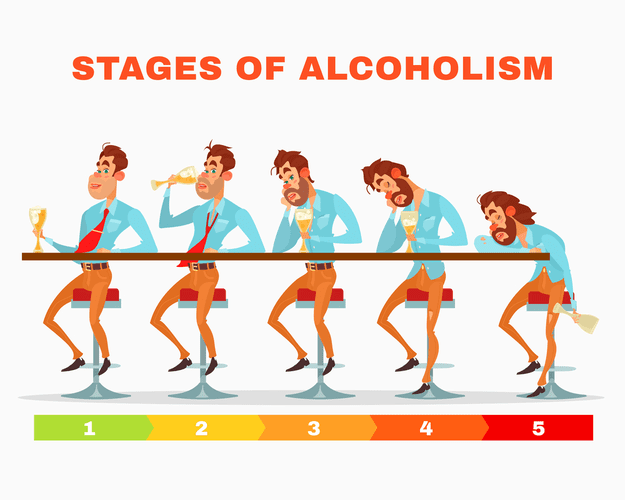Gratitude inspires the mind and the body to turn away from substance abuse. Establishing a regular gratitude practice can serve as a cornerstone for recovery. Individuals can begin by setting aside a few minutes each day to reflect on the positive aspects of their lives. This could involve writing down three things they are thankful for in a journal. It’s a simple yet effective way to shift focus from negativity to appreciation.

How to maintain a healthy lifestyle during recovery
For further insight, explore our resources on ways to be supportive of recovery and the importance of a routine for recovery – part 3. Understanding the feeling of gratitude in recovery plays a central role in enhancing the overall recovery journey. Gratitude can foster social connections and help individuals feel more connected to others. It encourages them to seek out support systems, find value in their communities, and share positive emotions with trusted individuals (Hazelden Betty Ford Foundation). By consistently engaging in these practices, individuals enhance their emotional resilience, making it easier to cope with challenges along the recovery journey. Practicing gratitude helps manage emotions, prevents relapses, and fosters a sense of patience and kindness, which is critical in recovery from addiction or trauma.
Why Changing Your Environment Can Help with Sobriety
Next is acknowledgment, which focuses alcohol rehab on learning from life’s experiences—both gains and setbacks. This stage encourages viewing hardships as opportunities for growth, fostering resilience, and gaining important lessons that support recovery. It promotes kindness, humility, and giving back, which reinforce one’s motivation and commitment to sobriety. Scientific research shows that gratitude improves mental health by increasing happiness, enhancing sleep quality, and lowering stress levels.
The role of recreational activities in addiction recovery
The list includes things like improved health, stronger relationships, and a renewed sense of purpose. Many individuals recovering from addiction share transformative stories centered on the impact of gratitude in their lives. For them, gratitude is not only a coping mechanism but a lifeline that has changed their outlook on life, providing motivation and hope. Research indicates that gratitude plays a pivotal role in recovery from addiction. A study by Chen (2017) highlights gratitude as an essential element of « recovery capital »—resources that help sustain sobriety.
At its core, gratitude is about developing a state of openness and vulnerability. It allows you to appreciate what you have instead of dwelling on your difficulties. According to studies, gratitude and happiness are always strongly correlated. In one study, researchers asked one group to note the things they were grateful for. They then asked another group to write about the daily irritations or things that had displeased them.
Recognizing personal progress and celebrating small wins helps you practice self-love, a cornerstone of lasting https://ecosoberhouse.com/ recovery. Studies show that gratitude can lower stress, reduce symptoms of depression, and increase overall happiness—all crucial factors in a successful recovery journey. Practicing gratitude has been found to increase self-esteem, boost resilience, and enhance overall well-being. In studies where participants wrote letters of thanks to people who had positively impacted their lives, they reported feeling happier for up to a month after completing this task. Interestingly, expressing gratitude may also have benefits for those on the receiving end. A study published in Emotion found that people who received letters of gratitude reported feeling happier and more satisfied with their lives than those who didn’t receive any such letter.
This acknowledgment helps to rebuild trust and strengthen bonds, creating a more nurturing environment. Engaging in gratitude practices like keeping a gratitude journal or performing acts of kindness not only promotes resilience but also highlights positive experiences important for maintaining sobriety. By focusing on the positive aspects of their lives and being grateful for the progress made, individuals shift their perspective from the negative aspects of addiction to the positives of sobriety. This shift enhances motivation, reinforces the decision to stay sober, and provides a sense of purpose and fulfillment. Furthermore, gratitude encourages humility, making individuals more open to learning and attracting positive interactions from others, thereby strengthening their commitment to recovery.
Sharing appreciation with others, such as thanking a sponsor, family member, or friend, strengthens social connections that are vital for ongoing support. Engaging in mindfulness exercises—like meditation or deep breathing—promotes presence and enhances gratitude, making it easier to find everyday blessings. Moreover, emphasizing gratitude shifts attention away from negative thoughts and cravings, decreasing the likelihood of relapse. It promotes a positive outlook that emphasizes progress and hope, which are essential why is gratitude important in recovery for enduring recovery. Moreover, gratitude boosts motivation to stay sober by reminding individuals of their achievements and the support they have received.

The role of family therapy in healing relationships damaged by addiction
- Trapped in that mindset, an addicted person might think that there’s no point in trying to recover, because they’ll always use again.
- Additionally, gratitude enhances motivation to maintain accountability and commit to personal growth.
- It encourages a focus on personal progress, fostering resilience despite setbacks.
- As mentioned, when a person begins to think negatively, it often just grows and grows until they are upset, angry, bitter, and eventually resentful.
Our clinical team understands how to weave these practices into a comprehensive treatment plan that addresses the physical, mental, and emotional aspects of addiction. Expressing sincere gratitude to family, friends, sponsors, and fellow group members acknowledges their support and effort, helping to rebuild trust and strengthen bonds. These healthy relationships are crucial pillars of a strong recovery foundation. It can consume thoughts, time, and resources, leaving little room for appreciating family, friends, health, or simple comforts.

Keep your lists for a reminder of why you’re working toward recovery- and what the future could be. Meditation encourages mindfulness – the practice of being in the present moment without judgment. Mindfulness helps you focus on all those everyday events and experiences that make you feel positive – and grateful.
Drug Addiction
A grateful person knows sobriety is essential to healing the harm caused by addiction to themselves and to others. The quicker you can assume a position of feeling gratitude for being sober, the more likely your recovery will be successful and make a lasting impact on your ability to maintain sobriety. Those who view recovery as a burden or see their recovery experience as negative are more likely to turn back to alcohol or drugs.

